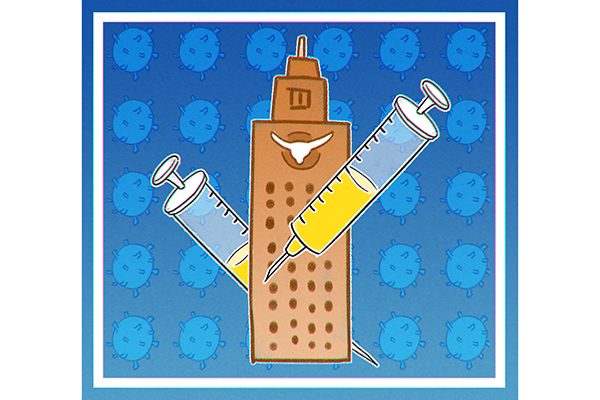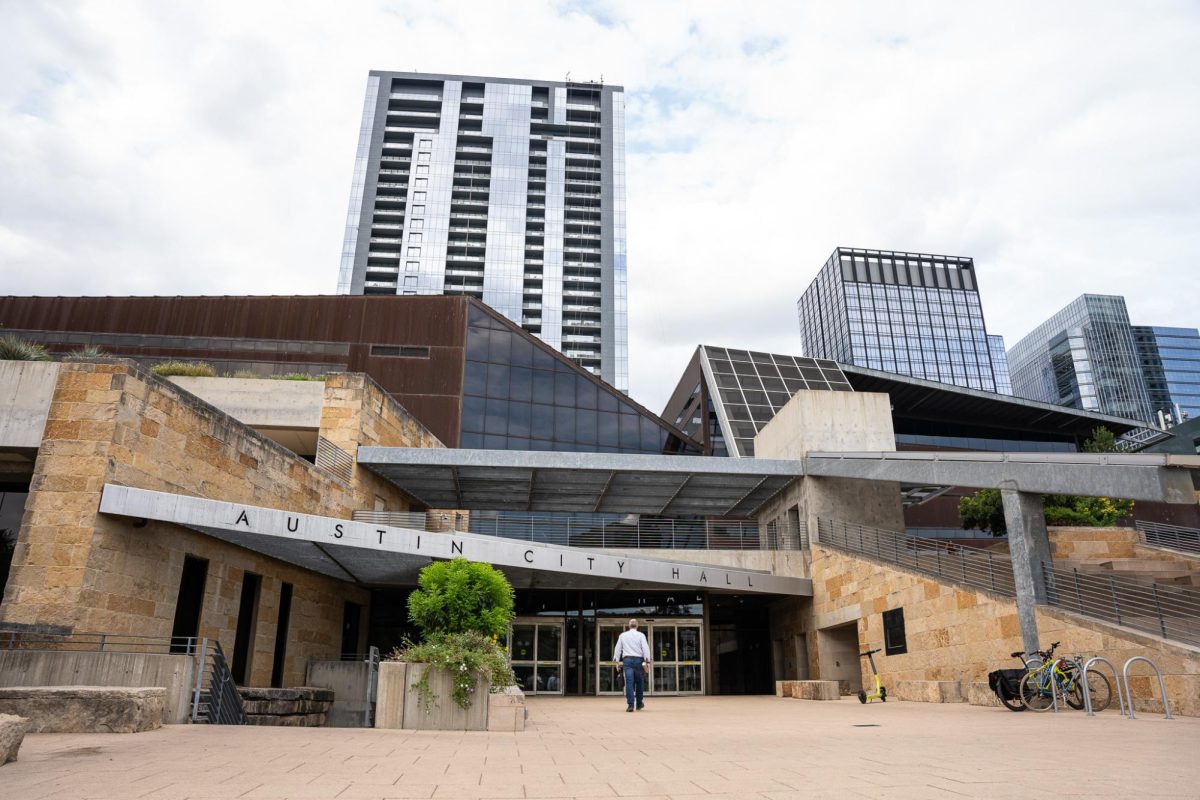Austin will receive 13,650 COVID-19 vaccines as early as next week to begin distribution to high-risk health care workers if the United States Food and Drug Association grants an Emergency Use Authorization of the Pfizer vaccine, Austin public health officials said at a Wednesday press conference.
“Our primary goal right now is to protect the hospital infrastructure,” said Mark Escott, interim medical director and health authority for Austin-Travis County. “Our other major priority during these initial phases is to really prevent death and severe disease … It’s probably going to be spring or early summer before it’s likely those (younger) individuals will be offered a vaccine.”
The University of Texas at Austin will receive under 3,000 COVID-19 vaccines that will be reserved for healthcare providers, according to previous reporting by The Daily Texan. It is unclear when the vaccines will arrive, but the University plans on making vaccinations voluntary for all students, faculty and staff. Once health care workers are vaccinated, other populations will receive the vaccine in accordance with state and federal guidance.
The Pfizer vaccine has about a 95% efficacy rate but will need two separate injections, Escott said. Additional vaccines will trickle in these coming weeks, he said.
Escott said as intensive care units fill up across the country, Austin ICUs have also seen an increase in patients over the past week and are currently operating at 85% capacity. He said that 85% is still a normal capacity for Austin hospitals.
“We are concerned this is about the time we expect to see the hospital side of things starting to be more significantly impacted,” Escott said. “The next several days will tell us a lot about how significant that bounce will be.”
Postponing elective surgeries will be able to clear more resources for hospitals if needed.
Chief epidemiologist Janet Pichette said Austin is seeing rampant community transmission following the holidays.
“A lot of people who are investigated and when asked if they can provide their contacts to us, they are refusing to do so, and we see that specifically this week related to holiday gatherings,” Pichette said.
Escott said Austin is relying on community support for contact tracing efforts and individuals that have contracted COVID-19 should let those who have been in contact with them know they have been exposed.
Stephanie Hayden, director of Austin Public Health, said as Hanukkah begins Dec. 10 and Christmas shortly after, everyone should plan and create new traditions that keep them safe this winter.
The Austin-American Statesman uncovered that Austin Mayor Steve Adler attended an outdoor wedding last month and later vacationed in Cabo San Lucas, Mexico, where he filmed a Facebook video cautioning Austin citizens to stay home whenever possible.
Escott said he and Adler did not specifically talk about the trip, but since the city was at Stage 3 of COVID-19 risk, traveling was allowed for those in the lower risk category.
“From the public health standpoint, it was not inconsistent with the guidance at the time,” Escott said.





















